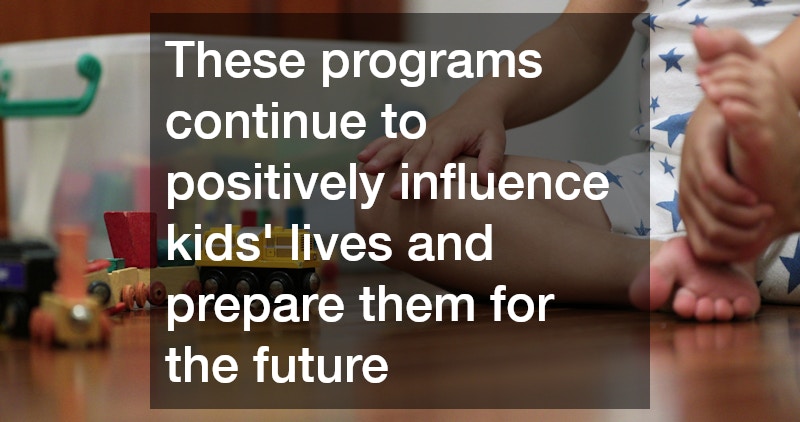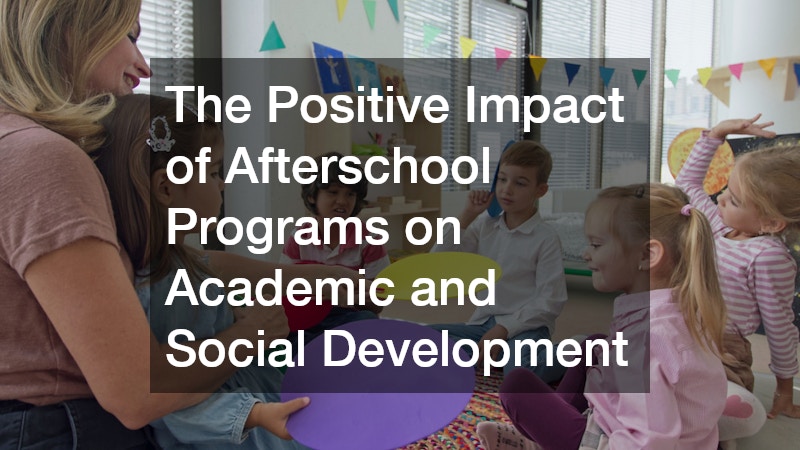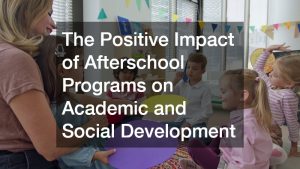Afterschool programs have become a critical component in the educational landscape, providing invaluable support for students’ academic and social development. As the demands of modern education continue to evolve, these programs offer much-needed supplemental care and enrichment to help children thrive. By engaging in various activities and learning experiences, students gain opportunities to enhance their educational journey beyond the standard classroom setting.
The impact of these programs is wide-reaching, influencing not only academic performance but also social skills and emotional well-being. Many parents and educators have observed that children who participate in programs often exhibit improved study habits, better grades, and increased engagement in school activities. Moreover, these programs provide a safe and supportive environment where children can form meaningful relationships and develop important life skills.
In this article, we will explore the positive effects on both academic and social development. Through various examples and studies, we will highlight how these programs are instrumental in shaping well-rounded individuals. Understanding the value of these initiatives is crucial for parents, educators, and policymakers seeking to support the growth and development of young learners.
Enhancing Academic Performance
Afterschool programs play a significant role in reinforcing academic concepts taught during regular school hours. Many programs offer homework assistance, tutoring, and enrichment activities that are tailored to the needs of individual students. By providing personalized support and additional resources, these programs enable children to grasp difficult concepts, thereby improving their academic performance.
Research has shown that students who regularly attend programs demonstrate higher test scores and overall better grades. The structured environment allows for more focused and effective study sessions, which can lead to enhanced understanding and retention of academic material. This focused attention and practice contribute to a student’s confidence in their academic abilities.
Furthermore, these programs often incorporate innovative and interactive teaching methods that make learning more engaging and enjoyable. This approach can instill a lifelong love of learning and curiosity in students, encouraging them to explore new subjects and ideas. As a result, students are not only equipped with essential academic skills but also motivated to pursue their educational goals enthusiastically.
Promoting Social Development
Beyond academics, afterschool programs are vital for promoting social development among children. They provide a setting where students can interact with their peers in a structured and supportive environment, fostering teamwork and collaboration. Participation in group activities such as sports, arts, and community service projects helps students develop critical social skills.
Through these interactions, children learn to communicate effectively, resolve conflicts peacefully, and develop empathy for others. These skills are essential for building meaningful relationships and navigating social situations both within and outside of school. These programs create opportunities for students to meet peers from different backgrounds, promoting diversity and inclusivity.
Moreover, the social connections formed often lead to lasting friendships, providing children with a sense of belonging and support. These positive relationships can significantly impact a child’s emotional well-being and self-esteem, contributing to their overall happiness. In this way, afterschool programs serve as a crucial platform for holistic social development, preparing children for future social interactions and challenges.
Fostering Emotional and Behavioral Development
Afterschool programs contribute to students’ emotional and behavioral development by offering consistent guidance and positive reinforcement. Many programs focus on character education and life skills, teaching children the importance of responsibility, respect, and resilience. These foundational aspects are crucial for a child’s personal growth and overall development.
The supportive environment provides a safe space for children to express their thoughts and emotions without fear of judgment. This emotional support helps children develop healthy coping mechanisms, reducing the likelihood of behavioral issues and promoting mental well-being. Structured programs with routines and expectations also teach children self-discipline and time management.
In addition, children who participate in programs often exhibit reduced rates of risky behaviors, such as substance abuse or delinquency. Engagement in positive activities and mentorship from caring adults helps steer children towards beneficial paths. By fostering emotional stability and behavioral discipline, afterschool programs equip students with the tools they need to navigate life’s challenges effectively.
They have a profound positive impact on both the academic and social development of students. They provide essential support that extends well beyond traditional classroom learning, equipping children with the skills and confidence needed to succeed in various areas of life. As society continues to evolve, the role of afterschool programs in nurturing well-rounded, capable individuals remains indispensable.
The evidence of improved academic performance, enhanced social interactions, and emotional well-being underscores the importance of investing in and expanding access to quality programs. These programs serve as a valuable resource for families and communities, contributing to the holistic development of young learners. Their contribution to shaping the future generation cannot be overstated.
As we move forward, it is essential for policymakers, educators, and community leaders to recognize and support the expansion of programs to ensure they reach more students in need. Through collaboration and continued investment, these programs can continue to positively influence students’ lives, preparing them for a prosperous and fulfilling future. In this way, afterschool programs remain a vital component of a comprehensive educational strategy that seeks to support every aspect of a child’s growth.








